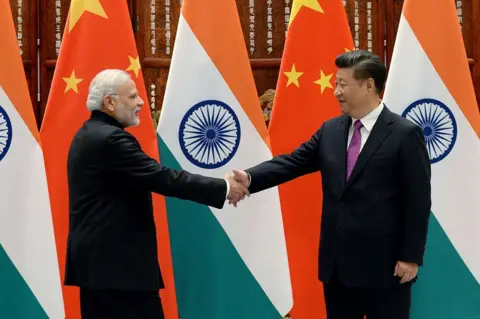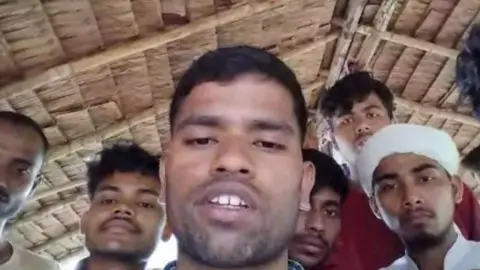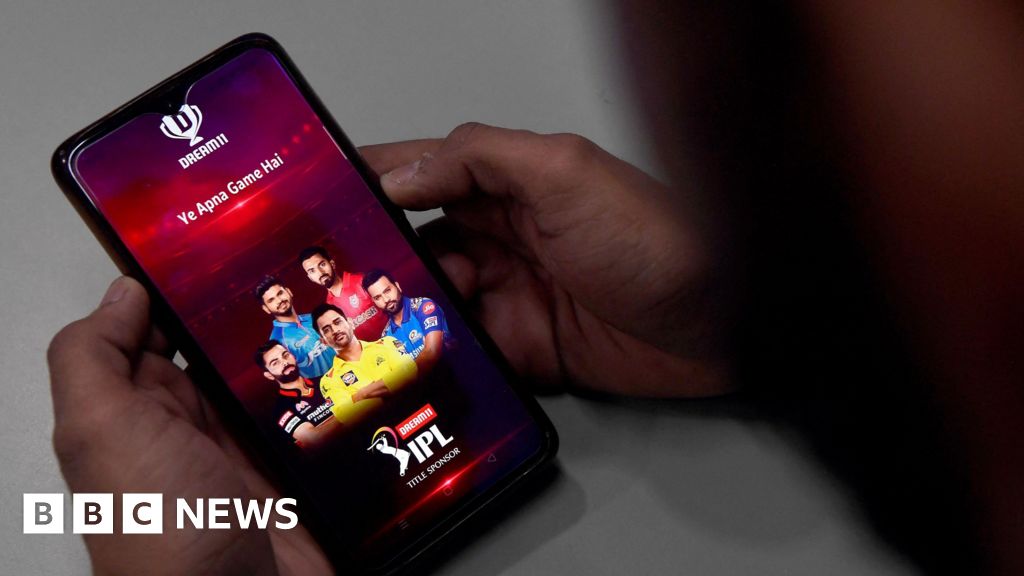The Indian government is poised to initiate legal action against Sotheby's, urging the auction house to cancel a planned sale of jewels connected to the remains of Buddha. The sale, scheduled for Wednesday, features gemstones discovered with Buddha's bone fragments over a century ago. India's Ministry of Culture asserts that the auction infringes upon Indian and international laws, as well as UN conventions, calling for the jewels to be recognized as sacred artifacts.
The gems are being sold by Chris Peppé, the great-grandson of William Claxton Peppé, who unearthed these relics in 1898 while excavating a stupa at Piprahwa—near the reputed birthplace of Buddha, Lumbini. The auction and the involvement of Sotheby's have sparked outrage among Buddhists and art historians worldwide, who criticize the commodification of such culturally significant items.
In a public statement, the Indian Ministry of Culture shared its correspondence with Sotheby's and Peppé, emphasizing that the great-grandson's authority to sell the relics is dubious at best. They accused the auction house of participating in the "continued colonial exploitation" of heritage assets. The letter outlined that Peppé transferred some relics to the colonial Indian government after their excavation, but over time, what remains in his family is deemed inadequate and misleadingly labeled as "duplicates."
The ministry contends that these jewels are vital components of India’s cultural and religious heritage, arguing that they cannot simply be classified as artifacts but rather as integral offerings related to the sacred body of Buddha. It has demanded a public apology from both Sotheby's and Peppé, along with full transparency regarding the ownership history of the relics.
Moreover, the ministry's statement raised concerns about Peppé’s claim of custodianship, suggesting that if Sotheby's and Peppé fail to comply with its demands, they may face legal repercussions in both India and Hong Kong. The ministry also warned about the potential for a public campaign highlighting Sotheby's role in upholding what it perceives as colonial injustices.
Previously, Chris Peppé had communicated that various options for donating the jewels were explored, ultimately leading to the decision to auction them as the most equitable means of transfer to interested Buddhist parties. Over the last several years, the jewels have been showcased at numerous prestigious exhibitions, including a significant display at The Met in 2023. The Peppé family has sought to document their research on the artifacts through a dedicated website. Despite these efforts, Indian officials maintain that the jewels should not be commercialized and deserve to be preserved as a shared heritage.
The gems are being sold by Chris Peppé, the great-grandson of William Claxton Peppé, who unearthed these relics in 1898 while excavating a stupa at Piprahwa—near the reputed birthplace of Buddha, Lumbini. The auction and the involvement of Sotheby's have sparked outrage among Buddhists and art historians worldwide, who criticize the commodification of such culturally significant items.
In a public statement, the Indian Ministry of Culture shared its correspondence with Sotheby's and Peppé, emphasizing that the great-grandson's authority to sell the relics is dubious at best. They accused the auction house of participating in the "continued colonial exploitation" of heritage assets. The letter outlined that Peppé transferred some relics to the colonial Indian government after their excavation, but over time, what remains in his family is deemed inadequate and misleadingly labeled as "duplicates."
The ministry contends that these jewels are vital components of India’s cultural and religious heritage, arguing that they cannot simply be classified as artifacts but rather as integral offerings related to the sacred body of Buddha. It has demanded a public apology from both Sotheby's and Peppé, along with full transparency regarding the ownership history of the relics.
Moreover, the ministry's statement raised concerns about Peppé’s claim of custodianship, suggesting that if Sotheby's and Peppé fail to comply with its demands, they may face legal repercussions in both India and Hong Kong. The ministry also warned about the potential for a public campaign highlighting Sotheby's role in upholding what it perceives as colonial injustices.
Previously, Chris Peppé had communicated that various options for donating the jewels were explored, ultimately leading to the decision to auction them as the most equitable means of transfer to interested Buddhist parties. Over the last several years, the jewels have been showcased at numerous prestigious exhibitions, including a significant display at The Met in 2023. The Peppé family has sought to document their research on the artifacts through a dedicated website. Despite these efforts, Indian officials maintain that the jewels should not be commercialized and deserve to be preserved as a shared heritage.






















